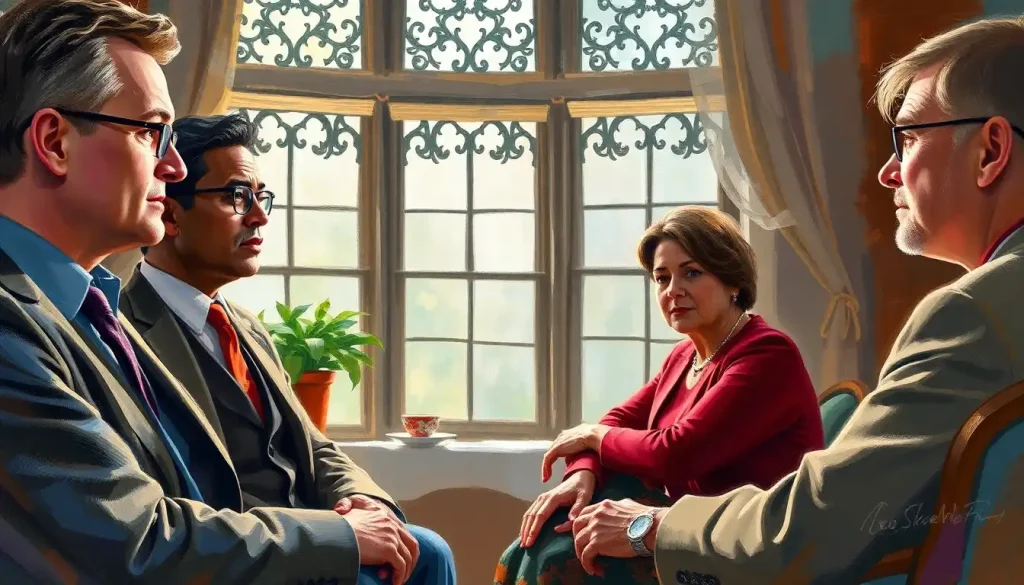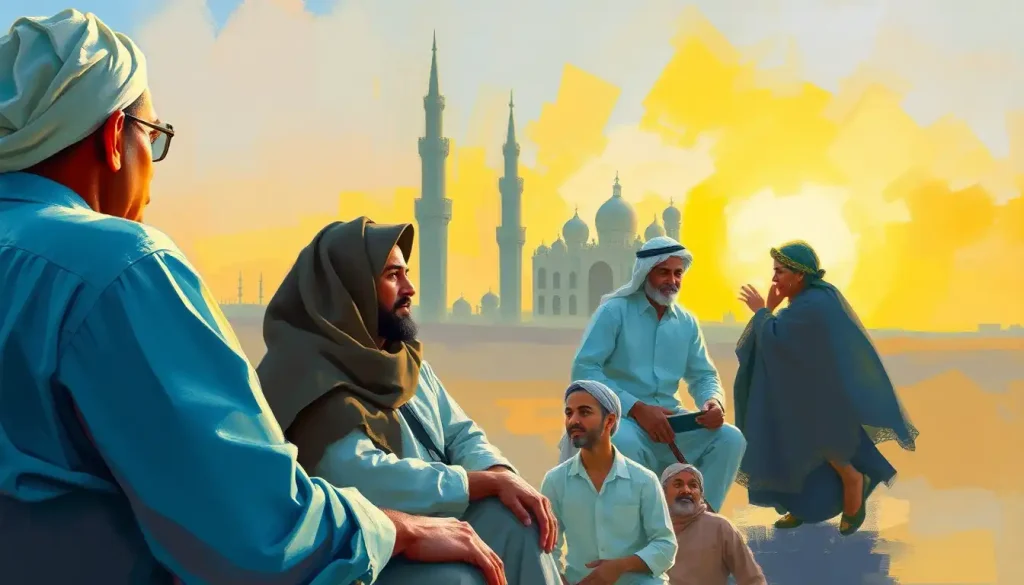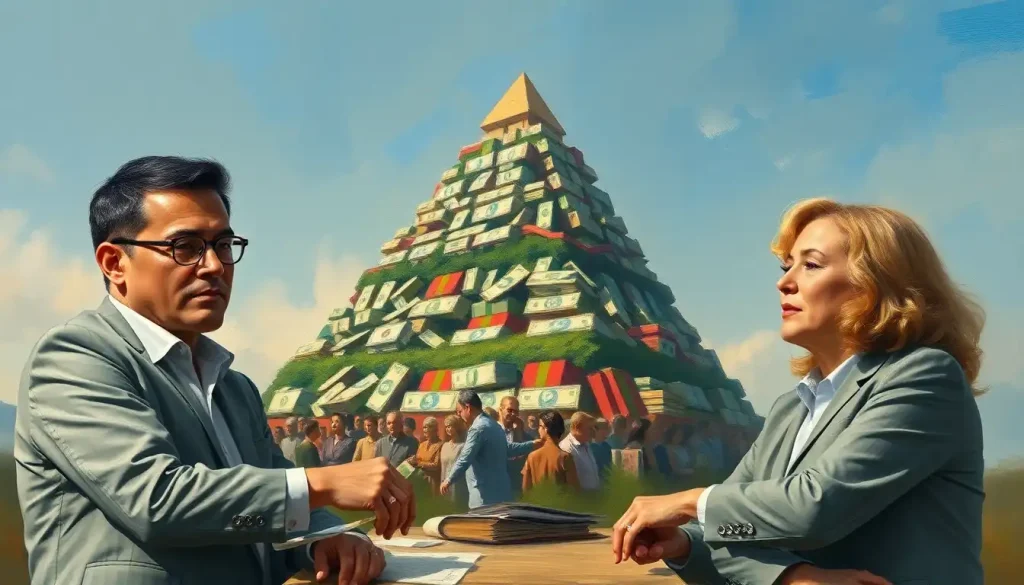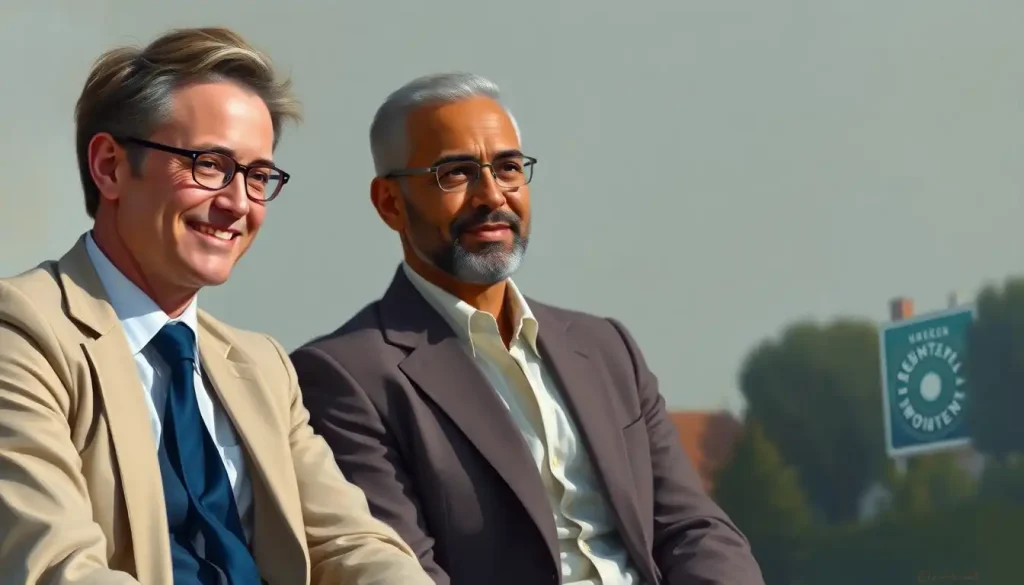From humble newspaper beginnings in Adelaide, Australia, to commanding a $17.5 billion media empire that shapes public opinion across multiple continents, the story of the Murdoch family fortune reads like a modern-day Citizen Kane – only with far greater reach and real-world consequences. The Murdoch name has become synonymous with media influence, political power, and staggering wealth. But how did this family amass such an enormous fortune, and what does it mean for the global media landscape?
Rupert Murdoch’s rise to power is a tale of ambition, strategic acquisitions, and an uncanny ability to predict and shape media trends. Born in 1931, Murdoch inherited a small Adelaide newspaper from his father at the age of 22. From this modest start, he began building an empire that would eventually span the globe. His knack for identifying undervalued media assets and transforming them into profitable ventures became the cornerstone of his success.
The scale of Murdoch wealth in the global media landscape is truly mind-boggling. With interests in newspapers, television networks, film studios, and digital media platforms, the Murdoch empire touches nearly every aspect of modern communication. This vast reach has allowed the family to wield considerable influence over public opinion and political discourse in countries like the United States, the United Kingdom, and Australia.
Key components of the Murdoch fortune include News Corporation, 21st Century Fox (now part of Disney), and the newly formed Fox Corporation. These entities represent a diverse portfolio of media assets that have contributed to the family’s immense wealth. But the story of Murdoch wealth is not just about numbers on a balance sheet; it’s about the power to shape narratives and influence global events.
The Building Blocks of a Media Empire
At the heart of the Murdoch fortune lies News Corporation, a global media conglomerate that has been the family’s primary vehicle for expansion and wealth creation. Founded in 1979, News Corp has grown to encompass a vast array of print, digital, and broadcast media properties across multiple continents.
In the print realm, News Corp owns some of the world’s most influential newspapers, including The Wall Street Journal, The Times of London, and The Australian. These publications have not only been profitable ventures but have also served as powerful platforms for shaping public opinion and political discourse.
The company’s digital holdings are equally impressive, with a portfolio that includes popular websites, streaming services, and digital advertising platforms. This diversification into digital media has been crucial in maintaining the relevance and profitability of the Murdoch empire in the face of declining print readership.
Another key source of Murdoch wealth was 21st Century Fox, which was sold to Disney in a landmark $71.3 billion deal in 2019. This transaction not only added a substantial sum to the family’s coffers but also reshaped the entertainment industry landscape. The deal included iconic properties like 20th Century Fox film studio, Fox’s stake in Hulu, and various international television assets.
The sale of 21st Century Fox didn’t mark the end of the Murdochs’ involvement in television, however. The newly formed Fox Corporation retained control of Fox News, Fox Sports, and the Fox broadcast network. Fox News, in particular, has been a significant contributor to the family’s wealth and influence, consistently ranking as one of the most-watched cable news networks in the United States.
Beyond traditional media, the Murdochs have diversified their wealth through strategic real estate investments and other business ventures. These investments have included everything from vineyards in California to prime real estate in New York City and London. This diversification strategy has helped to insulate the family’s wealth from the volatility of the media industry.
The Staggering Numbers Behind Murdoch Wealth
The current estimated net worth of the Murdoch family is a subject of much speculation and analysis. While exact figures are difficult to pin down due to the complex nature of their holdings, estimates place the family’s net worth in the neighborhood of $17 billion to $20 billion. This places them among the wealthiest families in the world, rivaling the Rockefellers’ wealth adjusted for inflation.
The growth of Murdoch wealth has been nothing short of remarkable. From the acquisition of a single newspaper in Adelaide, the family’s fortune has grown exponentially over the decades. Major milestones in this wealth accumulation include the expansion into the UK market in the 1960s, the launch of Fox Broadcasting Company in the 1980s, and the acquisition of Dow Jones & Company (publisher of The Wall Street Journal) in 2007.
When compared to other media moguls and billionaires, the Murdochs stand out not just for the size of their fortune, but for the breadth and depth of their influence. While tech billionaires like Jeff Bezos and Mark Zuckerberg may have larger net worths, the Murdochs’ direct control over major news outlets gives them a unique form of power that extends beyond mere financial wealth.
The impact of major acquisitions and divestitures on the family’s wealth cannot be overstated. The aforementioned sale of 21st Century Fox to Disney, for example, not only added billions to the family’s net worth but also allowed them to streamline their holdings and focus on their core news and sports businesses.
Managing a Multi-Billion Dollar Fortune
The distribution and management of Murdoch wealth is a complex affair, involving intricate family trust structures and careful succession planning. The Murdoch Family Trust, which controls about 39% of voting shares in News Corp and Fox Corporation, is at the center of this wealth management strategy.
Rupert Murdoch’s children play varying roles in managing the family’s assets. Lachlan Murdoch, the eldest son, has emerged as the heir apparent, serving as co-chairman of News Corp and CEO of Fox Corporation. James Murdoch, once seen as a potential successor, has distanced himself from the family business in recent years, citing disagreements over editorial direction.
The question of succession has been a topic of much speculation and intrigue, reminiscent of the dynastic struggles seen in the Royal Family’s wealth management. Rupert Murdoch, now in his 90s, has been gradually handing over control to the next generation, but the future of the Murdoch empire remains a subject of intense interest and debate.
Despite their vast wealth, the Murdochs have also engaged in significant philanthropic efforts. The family has donated millions to various causes, including education, medical research, and the arts. However, these charitable efforts have sometimes been overshadowed by controversies surrounding their media holdings.
Weathering Storms and Facing Challenges
The path to building and maintaining such enormous wealth has not been without its challenges and controversies. One of the most significant crises faced by the Murdoch empire was the phone hacking scandal that engulfed News Corporation in 2011. This scandal, which involved illegal phone interceptions by journalists at News of the World, led to the closure of the 168-year-old newspaper and cost the company hundreds of millions in legal fees and settlements.
The financial impact of the phone hacking scandal was substantial, but perhaps even more damaging was the blow to the family’s reputation. The incident led to increased scrutiny of Murdoch-owned media outlets and raised questions about the ethical practices within the empire.
Regulatory challenges and antitrust concerns have also posed significant threats to Murdoch wealth. The family’s vast media holdings have often drawn the attention of regulators concerned about media concentration and its potential impact on public discourse. These concerns have sometimes forced the Murdochs to divest certain assets or abandon acquisition plans.
Public perception of the Murdoch media empire has been mixed, to say the least. Critics argue that Murdoch-owned outlets have had an outsized influence on political discourse, often promoting conservative viewpoints and shaping public opinion on key issues. This perception has led to both loyal support from some quarters and vehement criticism from others.
In recent years, the Murdoch empire has faced the challenge of adapting to a rapidly changing media landscape. The rise of digital platforms and streaming services has disrupted traditional media business models, forcing the Murdochs to rethink their strategies and invest heavily in digital transformation.
The Future of Murdoch Wealth
Looking ahead, the future of Murdoch wealth seems poised for continued growth, albeit with significant challenges. Potential growth areas include further expansion into digital media, sports betting, and international markets. The family has shown a remarkable ability to adapt to changing media consumption habits, and this adaptability will be crucial in maintaining and growing their wealth in the coming years.
However, the challenges facing traditional media businesses cannot be ignored. Declining print readership, cord-cutting trends in television, and the dominance of tech giants in digital advertising all pose threats to the Murdoch media empire. Navigating these challenges will require innovation, strategic investments, and perhaps a willingness to let go of some legacy businesses.
The next generation of Murdochs, led by Lachlan, will play a crucial role in shaping the future of the family empire. Their vision for the future of media and their ability to navigate an increasingly complex and polarized media landscape will determine the trajectory of Murdoch wealth in the coming decades.
Predictions for the future of Murdoch wealth and influence are varied. Some analysts believe that the family’s ability to adapt and their strong position in news and sports media will allow them to maintain their wealth and influence. Others argue that changing demographics and media consumption habits may gradually erode the power of traditional media empires like the Murdochs’.
In conclusion, the story of Murdoch wealth is one of ambition, strategic vision, and the power of media in the modern world. From a single newspaper in Adelaide to a global media empire, the Murdochs have built a fortune that rivals the Vanderbilt wealth of the Gilded Age. Their influence extends far beyond mere financial metrics, shaping public opinion and political discourse across multiple continents.
The lasting legacy of the Murdoch family fortune is likely to be complex and controversial. On one hand, they have built one of the most successful media empires in history, creating enormous wealth and employing thousands of people around the world. On the other hand, their influence over public discourse and political processes has raised important questions about media ownership concentration and the role of powerful individuals in shaping societal narratives.
As we look to the future, the story of Murdoch wealth serves as a fascinating case study in the intersection of media, money, and power in the 21st century. It reminds us of the enormous influence that media can wield in our interconnected world and the responsibility that comes with such power. Whether viewed as captains of industry or modern-day media barons, the Murdochs have undeniably left an indelible mark on the global media landscape, and their wealth continues to be a subject of fascination and scrutiny for observers around the world.
The Murdoch Legacy: Beyond Wealth
While the staggering figures associated with Murdoch wealth are certainly impressive, it’s crucial to understand that the family’s true power extends far beyond their bank accounts. The Murdoch legacy is not just about accumulating vast sums of money; it’s about the ability to shape narratives, influence public opinion, and even sway political outcomes across multiple countries.
This level of influence puts the Murdochs in a unique position, even when compared to other billionaire families like the Waltons behind Walmart’s empire. While the Waltons have undoubtedly changed the face of retail, the Murdochs have the power to change minds and potentially alter the course of history through their media outlets.
The family’s influence has been particularly notable in elections. In the United States, the United Kingdom, and Australia, Murdoch-owned media outlets have been accused of swaying public opinion during crucial political moments. This has led to intense debate about the role of media in democracy and the dangers of concentrated media ownership.
However, it’s important to note that the Murdoch influence isn’t universally seen as negative. Supporters argue that their media outlets provide a necessary counterbalance to what they perceive as a liberal bias in mainstream media. They credit Murdoch-owned outlets with giving voice to conservative viewpoints that might otherwise be underrepresented.
The Human Side of Murdoch Wealth
Behind the headlines and balance sheets, it’s easy to forget that the Murdoch fortune is, at its core, a family affair. The dynamics within the Murdoch family have been the subject of much speculation and interest, often drawing comparisons to fictional dynastic sagas.
The relationship between Rupert Murdoch and his children, particularly in terms of succession planning, has been a source of both fascination and controversy. The family has weathered public disagreements, shifting alliances, and the challenges of maintaining unity while overseeing a global empire.
This human element adds an intriguing layer to the story of Murdoch wealth. It reminds us that even in the realm of obscene wealth, family dynamics, personal ambitions, and individual values play a crucial role. The decisions made by Rupert Murdoch and his children will shape not only their family’s fortune but also the media landscape for years to come.
The Murdoch Wealth in a Changing World
As we move further into the 21st century, the story of Murdoch wealth continues to evolve. The media landscape is changing rapidly, with digital platforms and social media increasingly dominating how people consume news and entertainment. This shift presents both challenges and opportunities for the Murdoch empire.
On one hand, traditional media outlets – including many owned by the Murdochs – are facing declining revenues and audience shares. The rise of streaming services has disrupted the television industry, while print newspapers continue to struggle in the digital age.
On the other hand, the Murdochs have shown a remarkable ability to adapt to changing times. They’ve invested heavily in digital platforms, explored new revenue streams, and continued to leverage their existing assets in innovative ways. Their willingness to make bold moves – such as the sale of 21st Century Fox to Disney – demonstrates a strategic flexibility that bodes well for the future of their wealth.
Moreover, in an era of “fake news” and information overload, established media brands like those owned by the Murdochs may find renewed value. As consumers seek out trusted sources of information, the Murdoch empire’s well-known outlets could potentially see a resurgence in influence and profitability.
The Global Impact of Murdoch Wealth
The reach of Murdoch wealth extends far beyond the English-speaking world. Through various international holdings and partnerships, the family’s media empire touches nearly every corner of the globe. This global presence gives the Murdochs a unique perspective on world events and the ability to shape international narratives.
In many ways, the story of Murdoch wealth is intertwined with the story of globalization itself. As markets opened up and technology advanced, the Murdochs were often at the forefront, expanding their empire and increasing their wealth. This global approach has allowed them to diversify their holdings and mitigate risks in ways that purely national media companies cannot.
However, this global reach also comes with increased scrutiny and responsibility. The Murdochs’ media outlets have the power to influence international relations, shape perceptions of different cultures, and impact global markets. This level of influence puts them in a league with other global power players, reminiscent of how the Rothschild family’s wealth shaped international finance in previous centuries.
The Future of Media and Murdoch Wealth
As we look to the future, the question of how Murdoch wealth will evolve becomes increasingly complex. The media industry is in a state of flux, with new technologies and changing consumer habits constantly reshaping the landscape. The decisions made by the Murdoch family in the coming years will be crucial in determining not only the future of their wealth but also the future of global media.
Will they double down on traditional media outlets, betting on the enduring value of established brands? Or will they pivot more aggressively towards digital platforms and emerging technologies? The answer will likely be a combination of both, as the family seeks to balance their legacy with the need for innovation.
One thing is certain: the story of Murdoch wealth is far from over. As long as information remains a valuable commodity – and it shows no signs of decreasing in value – the Murdochs will likely continue to play a significant role in its creation and distribution. Their wealth, influence, and legacy will continue to be subjects of fascination, admiration, and controversy for years to come.
In the end, the tale of Murdoch wealth is more than just a story of dollars and cents. It’s a narrative about the power of media, the complexities of family dynamics, and the ever-evolving nature of global influence. As we continue to grapple with questions of media ownership, freedom of press, and the role of information in society, the Murdoch saga will undoubtedly remain a crucial case study, offering insights into the intricate relationship between wealth, power, and public discourse in our modern world.
References:
1. Chenoweth, N. (2014). Murdoch’s Pirates: Before the Phone Hacking, There Was Rupert’s Pay-TV Skullduggery. Allen & Unwin.
2. Elliot, G. (2010). The Life and Times of a Media Mogul. Random House.
3. Folkenflik, D. (2013). Murdoch’s World: The Last of the Old Media Empires. PublicAffairs.
4. McKnight, D. (2012). Rupert Murdoch: An Investigation of Political Power. Allen & Unwin.
5. Neil, A. (1996). Full Disclosure. Macmillan.
6. Page, B. (2003). The Murdoch Archipelago. Simon and Schuster.
7. Shawcross, W. (1997). Murdoch: The Making of a Media Empire. Touchstone.
8. Wolff, M. (2008). The Man Who Owns the News: Inside the Secret World of Rupert Murdoch. Broadway Books.
9. Dover, B. (2008). Rupert’s Adventures in China: How Murdoch Lost a Fortune and Found a Wife. Mainstream Publishing.
10. Lisners, J. (2012). Rupert Murdoch: The Untold Story of the World’s Greatest Media Wizard. Andre Deutsch.












Would you like to add any comments? (optional)